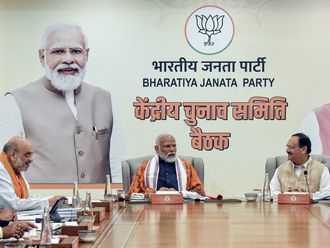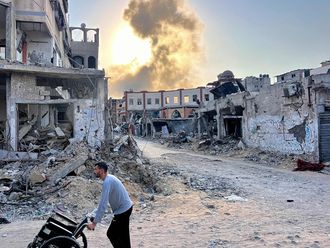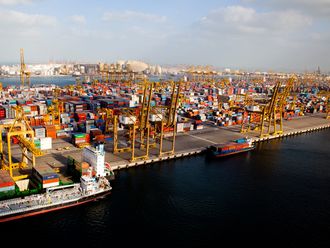When we talk about the potential for water cooperation in West Asia, we are immediately struck by the overwhelming socio-economic problems that define current affairs: Exponential population growth, ongoing climate change, severe mismanagement and resource competition, millions of refugees, prolonged floods ... There is a desperate need to address this dire situation. The Tigris river, along with the Orontes and Euphrates rivers, are acute examples of the tremendous over-exploitation of water from upstream (Turkey) where more than 20 dams have been built for the South-Eastern Anatolian Project’s, better known as GAP Project, for irrigation and agricultural usage. With Syria’s three dams on the Euphrates, Iraq gets even less water.
Elsewhere, Iran has built numerous dams on two tributaries of the Shatt Al Arab, which lay on the Iran-Iraq border. Iran’s role is largely disregarded in diverting secondary water courses feeding into the Tigris that is severely depleted by the time she gets to the marshlands south of Baghdad. Some say precisely because the political system in Baghdad is being run behind the scenes by Iran so the water exploitation goes on and on.
Water Terrorism
From the Iraqi Ministry of Foreign Affairs, Head of Regional Cooperation, Dr Walid Shiltagh, considers that “water is the key to sustainable development” and stresses the need for political will from governments to work on water cooperation and to address the very real and ever-present danger of terrorism in eastern Syria and western Iraq. The macabre tactics of the unnameable Al Qaida spin-offs have led to the illegal acquisition of more than 20 per cent of Iraqi territory and have led to the migration of millions of people across the borders from Iraq into Turkey, from Syria into Turkey, from Syria into Jordan, from Syria and Iraq into Jordan. The refugee problem is colossal and is being fed by water terrorism.
Beyond the beheading of foreigners (offered first in exchange for ransom) is the more widespread tactic of poisoning wells and water sources, forcing entire villages and towns to flee across borders. And then there is the capturing of dams — in Mosul earlier this summer for example. The dam was recaptured with US assistance, but the point was made: Water is a weapon too.
This is not to mention that already more than 40 million people in West Asia are considered to be ‘water vulnerable’, roughly 1/7 of Turkey and Lebanon, 1/4 of Jordan, 1/3 of Iraq and almost half of Syria, covering an area of more than 760,000 square kilometres. According to Strategic Forum Group reports, 13 of the 30 water vulnerable regions share international borders.
Regional Cooperation
West Asia is one of the most water-scarce regions in the world and in addition has been subjected to severe droughts between 2006 and 2010. Ongoing wars have not helped and made the political climate very difficult to advance in any direction towards shared natural resources. It is a future marked by uncertainty. Beyond the gloom, there is potential to move towards a regional confederation for water and energy cooperation. Small steps are being made in that direction by the Strategic Foresight Group and its Blue Peace initiative, such as calling for the establishment of monitoring stations in Turkey and Iraq to measure the quantity and quality of water flow.
Based in Mumbai, India, the Strategic Foresight Group is taking small but important steps in the right direction. Following publication of The Blue Peace, Rethinking Middle East Water (2011), the sequel to Water Cooperation for a Secure World, ‘Focus on the Middle East (2013)’ was presented as the basis for ‘Water Inclusion in West Asia’ — the theme of this year’s High Level Forum. Co-hosted by the newly established MEF University in Istanbul, on September 19-20, and in cooperation with the Swiss Agency for Development and Cooperation, the High Level Forum addressed these important water-related topics with an original mix of politicians, former policy-makers, academia and media representatives from around the region and beyond. A key is how to protect water resources from becoming a target for terrorism and from being used as a weapon to wreak chaos and destruction. Lebanese parliamentarian, Dr Bassem Shabb, said: “Water is more expensive than oil” now and suggested establishing a regional water grid that would help distribute and balance the demand and supply of this vital resource.
If such small steps can be taken despite the difficult realities, then we can envision Iraqis and Turks sharing a monitoring station that would be co-owned by the parties that would also share common ownership and management of the river. This is not outlandish. It requires political will and long-term commitment. It was done successfully in the Senegal River Basin years ago.
Stuart Reigeluth is the founder of Revolve Media.









